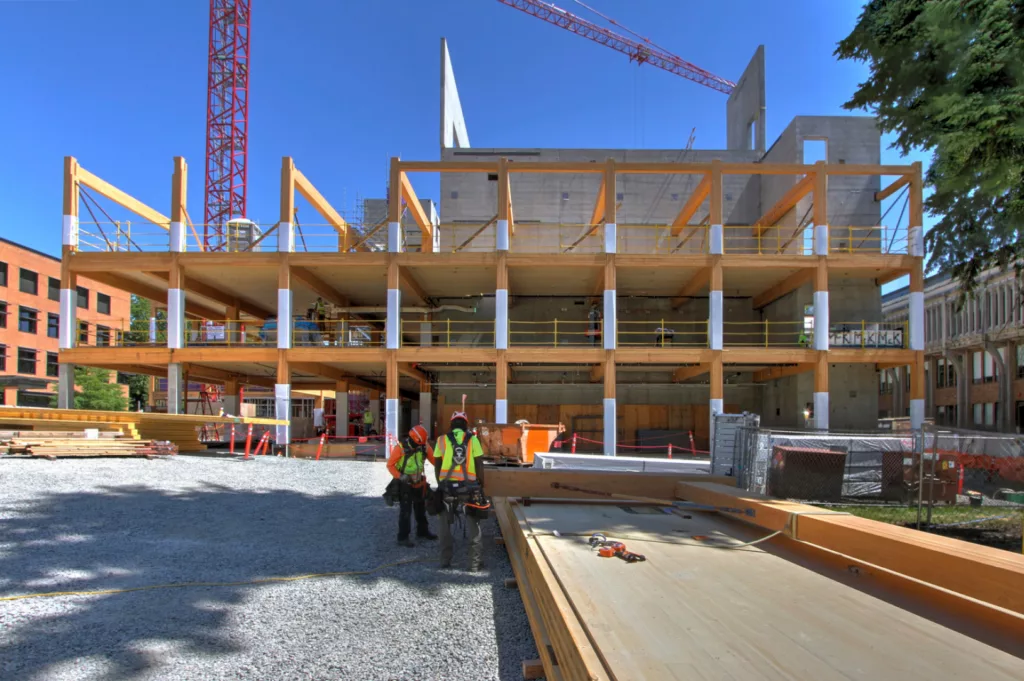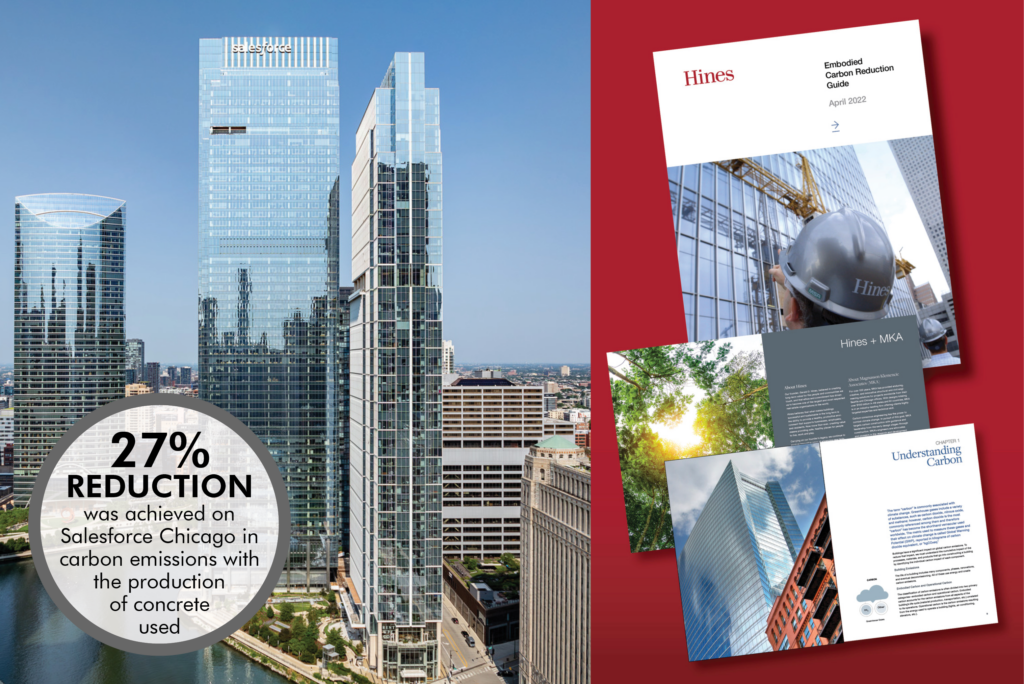As industry leaders, MKA believes we must foster innovative approaches to reduce structural embodied carbon. MKA has renewed its pledge of commitment to SE2050 by authoring the third annual MKA Embodied Carbon Action Plan (ECAP).
MKA’s 2024 ECAP describes the following:
- Consistent Commitment: MKA’s leadership in embodied carbon reduction dates to the first carbon calculations for structures in 2008. Since then, MKA has worked to establish the Carbon Leadership Forum in 2009, has been involved in the Green Building Council since 2012, and started the MKA Foundation in 2016. MKA has been a signatory member of SE 2050 since 2020.
- Early Guidance: Founders Hall is one of many examples of sustainability success achieved through MKA’s early guidance. Upon opening, the project was named the University of Washington’s “greenest building,” designed to achieve a cumulative carbon reduction of 76%, use 70% less energy, and 53% less water compared to typical facilities built using conventional methods.

- Advancing Sustainability: MKA projects were among the first to use concrete Environmental Product Declarations (EPDs) in San Francisco, Seattle, and Los Angeles. Hines’ Salesforce Tower in Chicago was the first project to implement the Hines Embodied Carbon Reduction Guide that MKA co-authored.

- Managing Policy Shifts: MKA has worked with the City of Seattle on establishing appropriate embodied carbon limits for construction materials, California on its new CALGreen requirements—the first mandatory state-level embodied carbon limits—and on the National Science Foundation’s Concrete Product Category Rule Committee, which sets new standards for developing concrete EPDs.
- Industry Impact: MKA’s project with Building Transparency creates a guiding document on industry best practices for communicating project emissions and reduction strategies. MKA also contributed to the Climate Smart Wood Group’s guide to wood procurement, setting the industry standards for sustainable timber construction.
Want to Learn More?
Contact Ian McFarlane, PE, SE to learn more about MKA’s ECAP and our latest carbon reduction strategies, or click below to download the complete 2024 ECAP.